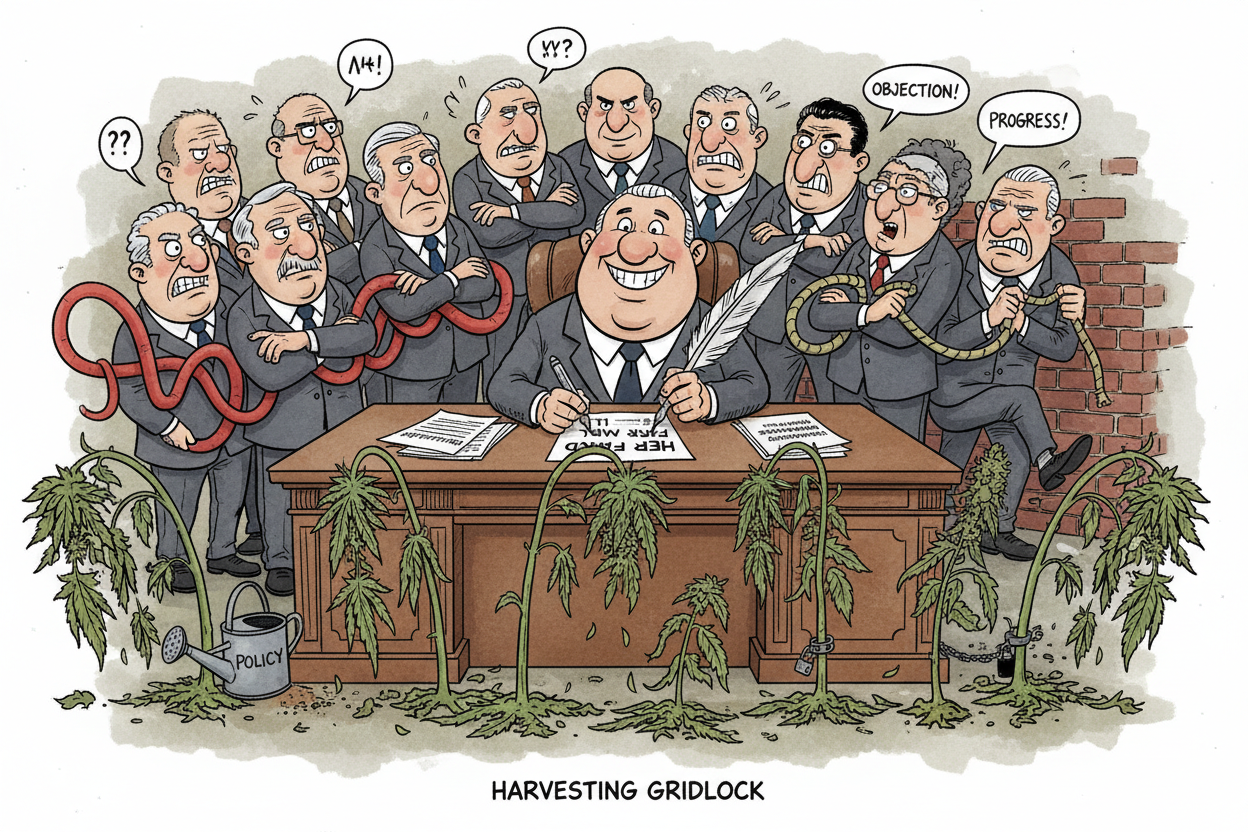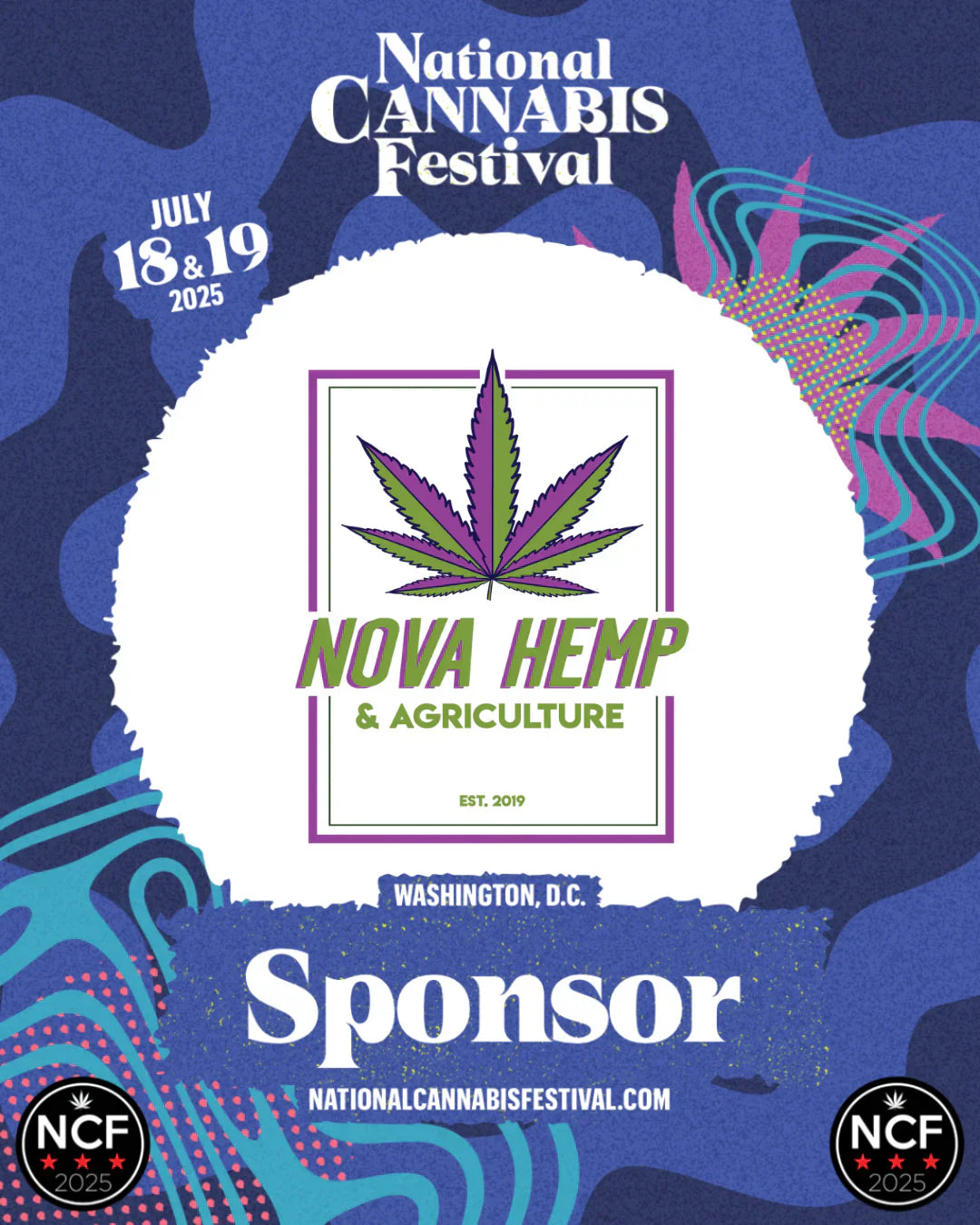In Richmond, Virginia, a pivotal legal battle unfolds as members and users of the hemp industry confront state restrictions, accusing them of conflicting with overarching federal law. At the heart of this dispute is the essence of the 2018 Agriculture Improvement Act — known colloquially as the Farm Bill — which significantly redefined the legal landscape for hemp in the United States.
The Core of the Conflict
Virginia's recent legislative actions have thrown the state into a contentious debate with hemp manufacturers and sellers, marking a critical juncture in the ongoing tension between state autonomy and federal oversight. The state's expansion of the federal definition of hemp to include delta-8 and other THC variants has manufacturers, sellers, and consumers up in arms. This widening of criteria threatens the viability of numerous hemp-based enterprises, including Northern Virginia's NOVA Hemp, which reported a devastating 70% revenue drop following the bill's enactment.
James Markels, an attorney representing the aggrieved parties, argued before the Fourth Circuit panel that Congress did not envision states redefining hemp at their discretion. The bone of contention lies in the state's public interest to shield its citizens from substances akin to delta-8, which, despite being a focal point of Virginia's legislative efforts, remains legally permissible under federal law.
The Farm Bill and Its Implications
The Agriculture Improvement Act of 2018 removed industrial hemp from the federal Controlled Substance Act's definition of marijuana, recognizing hemp as distinct, primarily due to its low delta-9 THC concentration. This landmark legislation was intended to bolster rural prosperity but inadvertently opened Pandora's box, leading to an increase in hemp-derived products with elevated THC levels in the form of delta variants, notably delta-8, delta-9, THCa, and so forth.
State attorneys counterargued that the "loophole" exploited by businesses to sell these THC variants has precipitated a public health crisis in Virginia, citing an alarming increase in THC-related poisoning incidents among young children. However, Markels and Nova Hemp contend that Congress, fully aware of the implications, deliberately chose to legalize such intoxicants, leaving the door open for FDA regulation or further Congressional action, neither of which has materialized.
A State's Right to Regulate?
Erika Maley, representing the state, posited that the Farm Bill offers a much narrower interpretation than plaintiffs suggest. According to Maley, while the bill allows federally licensed producers to grow hemp without fretting over Virginia's total THC standards, it doesn't prevent states from regulating hemp product sales. This interpretation underscores a broader debate on the extent of state jurisdiction in regulating federally legal substances, especially when public health considerations are at stake.
The discussion extends beyond the legal minutiae to fundamental questions about regulatory balance and the role of government in navigating the intricate dance between fostering innovation and ensuring public safety.
Looking Ahead
The Fourth Circuit panel, led by U.S. Circuit Judge Marvin Quattlebaum, grapples with these hefty legal and regulatory questions. Quattlebaum's remarks emphasize the court's focus on interpreting legislative intent and statutory authority rather than adjudicating on the relative dangers of delta-8 compared to other substances.
As this case progresses, it serves as a critical barometer for the future of hemp regulation in the United States, testing the limits of state and federal powers in crafting coherent, comprehensive policies for new and emerging industries. For hemp industry stakeholders, legal professionals, and farmers, the outcome could signal significant shifts in business operations, regulatory compliance, and the broader acceptance and utilization of hemp-derived products.
Business professionals and organizations keen on harnessing the potential of hemp and its derivatives watch closely as the 4th Circuit's decision could have far-reaching implications, underscored by the need for clarity, consistency, and collaboration in navigating the evolving landscape of cannabis law.
This unfolding saga encapsulates a broader narrative of innovation, regulation, and the search for equilibrium in a fast-evolving sector. The hemp industry's stakeholders remain hopeful for a resolution that harmonizes federal intentions with state concerns, paving the way for a thriving, responsibly regulated hemp market across the nation





Share:
Is It Legal to Buy Edibles Online?
Can You Buy THC Gummies Online?